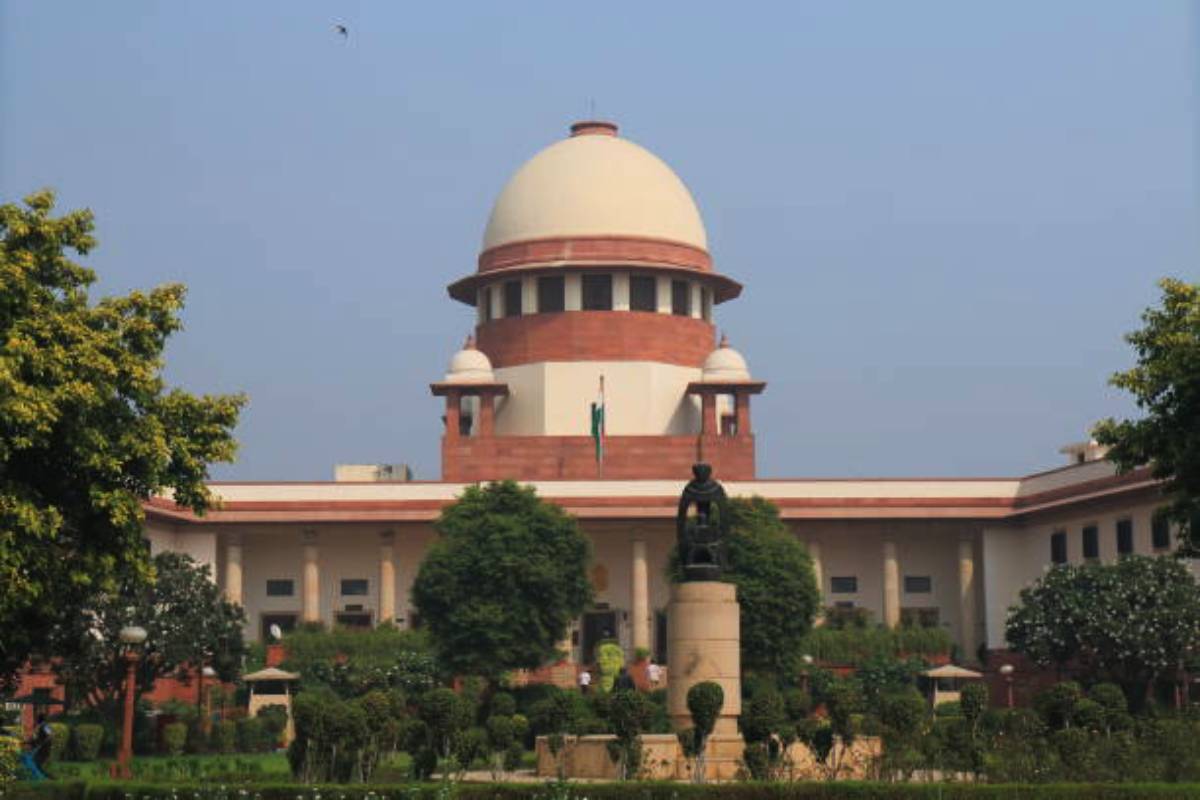Constitutional Whispers
There are several troubling aspects to the Apex Court’s interventions in the R G Kar case, argues Debarshi Chakraborty.
The apex court said that citing national security concerns as grounds for revoking license of a media/TV channel can’t be in thin air but on substantive material.

File Photo
Quashing the Centre’s refusal to grant security clearance to Malayalam news channel MediaOne, the Supreme Court on Wednesday said that citing national security concerns as grounds for revoking license of a media/TV channel can’t be in thin air but on the material backing it.
“It would be impractical and unwise for the courts to define the phrase national security; we also hold that national security claims cannot be made out of thin air. There must be material backing such an inference,” the top court said in its judgment today.
Directing the Ministry of Information and Broadcasting to consider the application for renewal of licence in four weeks in the light of its judgment, Chief Justice D Y Chandrachud, heading a bench also comprising Justice Hima Kohli, said there could not be a blanket immunity to the government to withhold information from other parties before the court as “All investigation reports cannot be termed secret as these affect the rights and liberty of the citizens.”
Advertisement
Stating that a “blanket immunity from disclosure of all investigative reports cannot be granted”, Chief Justice Chandrachud, speaking for the bench, said, “The validity of the claim of involvement of national security considerations must be assessed on the test of (i) whether there is material to conclude that the non-disclosure of information is in the interest of national security; and (ii) whether a reasonable prudent person would draw the same inference from the material on record.”
Stating that the State can’t impose unreasonable restrictions on press as it would have a chilling effect on free speech and freedom of press, the court said that the government cannot be allowed to have a stand that press must support the government and the criticism of the government decisions and policies cannot be a ground to revoke license of a media/TV channel.
Setting aside the Kerala High Court order upholding the Ministry of information & Broadcasting order to revoke the licence of the MediaOne, the court said that independent press is necessary for a robust democracy and critical views of the channel against the government policies cannot be termed as anti-establishment.
Stating that the “sealed cover” procedure was not a legislative exercise but a creation of the court and not compatible with the court proceedings, the judgment laid down an elaborate guidelines for the court to observe while adopting sealed cover procedure in the course of the hearing where the issue of national security has been flagged by the government.
The court said that in the first instance the government has to convince the court of its concern for national security and how this concern should override the principle of natural justice.
The apex court said that if court embarks on following the sealed-cover procedure, an amicus curia (friend of court) will be appointed, who before seeing the sealed-cover material would have a detailed interaction with the appellant. Thereafter, the CJI said will be under oath not to share with anybody the information made available to him as amicus curiae.
“The amicus curiae shall to the best of their ability represent the interests of the applicant. The amicus curiae would be bound by oath to not disclose or discuss the material (sought to be withheld by the State) with any other person, including the applicant or their counsel,” the top court observed.
Setting aside the high court order, the Supreme Court turned down the submission relating to alleged link of shareholders of the company owning MediaOne to Jamaat-e-Islami Hind and said it is not a legitimate ground to restrict the rights of the channel. The court also noted that there was no material to show such a link.
The top court had on March 15, 2022, ordered the resumption of broadcast by MediaOne TV channel as it stayed the Centre’s January 31, 2022, order revoking security clearance to the channel and consequent licence to telecast.
Restoring the broadcast by MediaOne, the court in its March 15 order had said, “We accordingly order and direct that pending further orders, the order of the Union government dated 31 January 2022 revoking the security clearance which was granted to the petitioner, Madhyamam Broadcasting Limited, shall remain stayed. The petitioners shall be permitted to continue operating the news and current affairs TV channel called Media One on the same basis on which the channel was being operated immediately prior to the revocation of the clearance on 31 January 2022.”
Advertisement